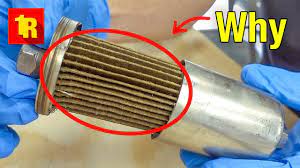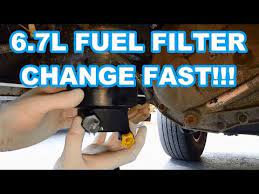How Often to Change a Fuel Filter
A diesel fuel filter removes dirt and debris from fuel before it reaches your engine’s injectors, and must be changed regularly for optimal engine performance.
Consult your owners manual for advice regarding an optimal maintenance schedule; these documents typically cover both normal and extreme condition requirements.
Prepare the new filter and drain pan in advance, and place them under the filter to allow fuel to drain out easily. Loosen its plug with a hex tool or socket wrench so fuel can enter it freely.
How to Change a Fuel Filter
Fuel filters are an essential component of any vehicle, particularly diesel ones. Their purpose is to filter out contaminants such as dirt and water from fuel before they reach injectors where they could cause irreparable damage. It is recommended that diesel and petrol filters should be changed every 30,000-40,000 kms for optimal engine health and to prevent costly problems later.
Start by placing a pan underneath your filter and turning off your engine, followed by taking steps to access its drain plug from within its housing and remove it so the fuel may drain freely; you may require a hex tool or wrench for this step.
Once the filter has been removed, wipe down its mating surfaces and seal groove with a clean, lint-free rag to remove debris and any accumulated oil or dirt. Install the new filter into its clean cap, using a wrench to tighten according to manufacturer specifications – taking care not to overtighten as this can create leaks and cause thread damage.
Changing a Secondary Fuel Filter
The secondary fuel filter, located near your engine, cleans diesel before sending it through to an injection pump. If this filter becomes clogged up, symptoms such as shaky idling and sounds signaling an imminent stall may arise as fuel starvation sets in.
Change of secondary filter can typically be accomplished by loosening a large bolt and unfastening the top cover, followed by draining of old filter. You may need to also temporarily loosen and open your petcock slightly in order to drain any water accumulated at the bottom of the bowl and collect any sediment for disposal into an appropriate container before tightening back the petcock again.
Installing a new filter requires following several important steps. Many filter manufacturers suggest applying diesel fuel directly to the gasket before placing it in order to reduce dirt entering through seals into injection systems. Furthermore, it’s a good practice to bleed the filter by opening its bleed screw and draining away some of its remaining fuel into an appropriate container before closing and tightening the bleed screw again for safe disposal.
Changing a Primary Fuel Filter
The diesel fuel filter is the initial stage in filtering fuel before it enters injectors and could become clogged or dirty, resulting in difficulties starting, running roughness or sounding like it may stalling of your diesel vehicle.
Unfastened the bolt on top of your primary filter to remove it and install a new one quickly and efficiently.
Before installing the new filter, be sure to remove and discard the old O-ring on its cap and clean its mating surface and seal groove with a lint-free rag so as to prevent leakage. After making these preparations, ensure the new filter fits snugly within its cap before tightening both to manufacturer specifications. Once in place, ensure it satisfies manufacturer specifications before tightening both to manufacturer standards – once complete reopen the fuel petcock and bleed air from its system (the procedure will differ depending on which engine). Refuel and run for a couple of minutes before starting back up again – before beginning to drive in order to regain efficiency!
Changing a Water Separator
Fuel water separator filters are an essential component of your vehicle’s fuel system, keeping out contaminants like dirt, debris and water that could otherwise reach the engine and lead to costly repairs due to clogged injectors, reduced engine performance or other causes.
Your diesel fuel filter requires replacing when it produces uneven idling or power is reduced due to a clogged filter that prevents enough fuel from reaching its injectors.
Fuel water separators are placed between primary filters and transfer pumps, so it’s advisable to change them with each set of filters you change. They come equipped with see-through bowls so that you can visually inspect contamination levels as you go along; additionally they come equipped with drain off valves so you can easily dispose of collected water when it accumulates. As with fuel filters, remove it with care using either a valve stem tool or screwdriver in order to avoid unintentionally releasing pressure or fluid spraying when taking this step!




Post Comment